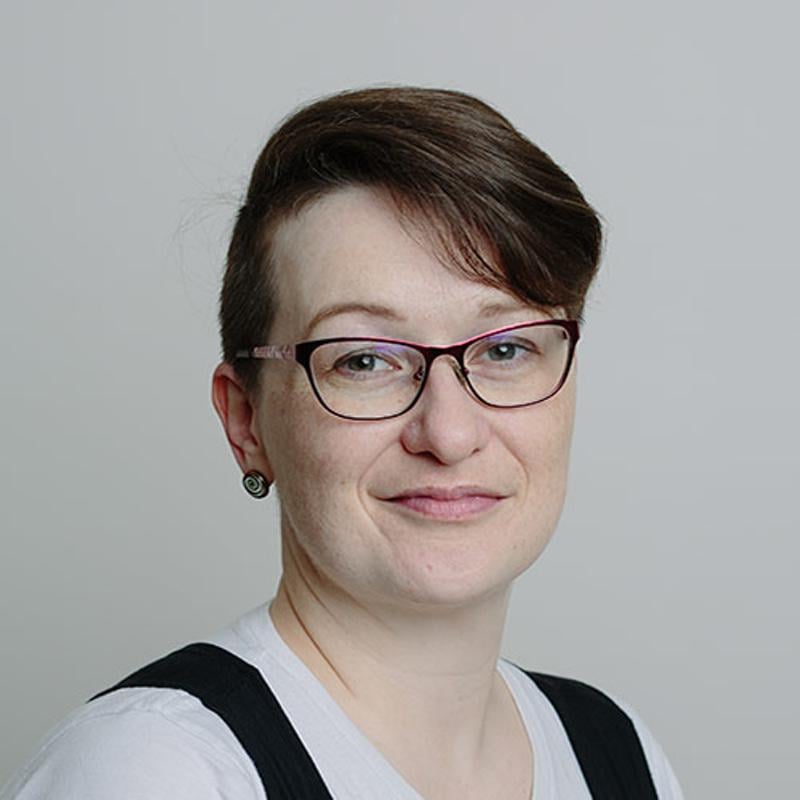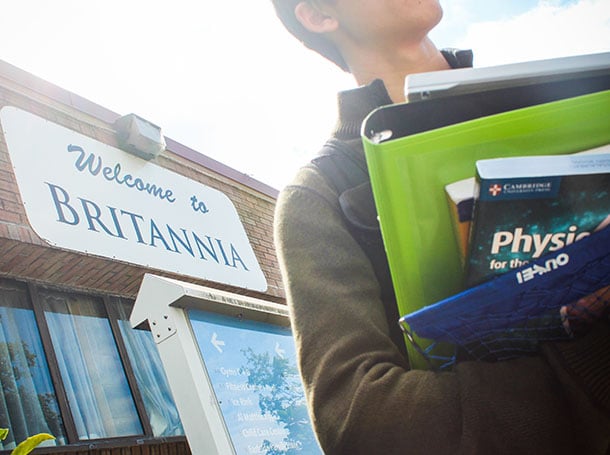In 2021, when the previous Vancouver School Board cancelled the controversial School Liaison Officer program, which was responsible for placing police officers in district schools, the police department issued a press release condemning the board’s “political decision” to cancel the program. The Vancouver Police Department emphasized that their “specially trained officers have helped youth stay safe in schools.”
In late November 2022, the current school board held four public delegation meetings to receive feedback on their plan to reinstate the School Liaison Officer program. In those meetings, supporters of the SLO program again noted that police officers had specialized training to work in schools.
“The SLO program allows administrators to work with officers who have training and an interest in working with children,” said Ankie Carswell, an elementary school principal who spoke in support of the program to the school board on behalf of the Vancouver Elementary Principals' and Vice-Principals' Association at the school board’s Nov. 23 public delegation meeting.
A few days later on Nov. 28, the school board passed their motion to work with the Vancouver Police Department to create a new School Liaison Officer program. Officers are expected to be in schools by September 2023.
The Tyee filed a freedom of information request for all training materials used for SLOs, as those had been mentioned frequently in public discussions about the program. The FOI has revealed the Vancouver Police Department did not provide officers with any special training before working with students.
Seventeen police officers, 17 high schools
The School Liaison Officer program ran from 1972 to 2021, with 17 Vancouver Police Department officers stationed in 17 public secondary schools and liaising with their feeder elementary schools.
In addition to acting as a liaison between the police department and schools, SLOs also participated in school activities. In addition to helping run school clubs and extracurriculars, they chaperoned field trips.
But it wasn’t all smooth sailing: community members were calling to remove police from schools, citing trauma caused to students by police in the community, and the overrepresentation of Indigenous and Black people targeted by VPD street checks. In June 2020, the Vancouver School Board agreed to review the School Liaison Officer program following those requests.
The board’s initial review came shortly after the murder of George Floyd by Minneapolis police and the police-caused and police-involved deaths of other Black and Indigenous people in Canada in the spring of 2020.
Since that time deaths by police in Canada have increased. And 2022 saw the highest number of Vancouver Police shootings in 15 years, while police shootings more than doubled provincewide in 2022 compared to the year before.
To gain a better understanding of how students experienced the SLO programs at their schools, the Vancouver school district commissioned a community consultation report that private consulting firm Argyle Communications released in March 2021.
The report noted the majority of respondents had a positive or neutral view of the program.
However, 53 per cent of Indigenous respondents and 60 per cent of Black respondents did not agree that the presence of police contributed to their sense of safety in schools. Some respondents cited anxiety around police, while others had negative personal experiences with officers.
Argyle’s report noted people with negative experiences faced greater barriers to participating in the consultations, such as retraumatization by talking about their experiences with police compared to those who had neutral or positive views.
The Vancouver School Board cancelled the program in April 2021, citing the negative experiences of Indigenous and Black students.
‘No specialized group training’
The return of police officers to the city’s public schools was a campaign promise from the ABC Vancouver party during the October 2022 municipal election. The party, also known as A Better City Vancouver, won the majority of seats on the school board, city council and park board after just over one-third of eligible voters cast ballots.
On Nov. 14, 2022, The Tyee submitted a request to the Vancouver Police Department’s freedom of information office for “all training materials for officers who participated in the School Liaison Officer program.”
The response arrived Dec. 29, 2022: “We consulted with the Youth Services Section and were advised that, outside of the regular officer training provided by the Department, there is no specialized group training that takes place within the School Liaison program. We were therefore unable to locate any records responsive to this request.”
The Tyee contacted both the Vancouver Police Department and the Vancouver School Board for interviews about past SLO training and what the VPD’s statement about “specially trained officers” refers to.
The Vancouver Police Department did not grant an interview, but pointed The Tyee to the provincial policing standards for more information on what training officers receive.
The standards included a few references to schools or working with young people. An unbiased policing document says police departments must have written procedures for investigating vulnerable populations including youth, and for interacting with vulnerable populations including children.
A community engagement document stipulates processes must be in place to consult with school districts on policing priorities, goals and objectives.
And policing standards established by the former British Columbia Police Commission document says a police force must have a “school liaison function” and written policy must say whether police are to “act as counsellors or provide referrals to appropriate social agencies.”
It also requires the department’s written policy to include how all officers, not just SLOs, interact with young people and children in investigations, ensuring they comply with the Youth Criminal Justice Act. No specific School Liaison Officer training is mentioned.
The Vancouver School Board did not grant an interview. In an emailed statement, board chair Victoria Jung said in the past, SLOs were invited to participate in trauma-informed threat assessment training supported by the school district. However, training requirements were up to the Vancouver Police Department.
“The Vancouver School Board is in the early planning phase with the VPD and do not have the specifics confirmed yet,” Jung’s statement read.
“The Board acknowledges there are many opinions about the previous program, which is why the Board is committed to implementing a new SLO program that will include input heard through the 2021 engagement report [better known as the Argyle report], over 80 delegations and hundreds of emails received in 2022.”
A call for practical solutions
The Tyee asked the Vancouver District Parent Advisory Council, composed of parent volunteers, how they felt about the lack of special training for SLOs.
“We’re kind of shocked in the sense that the media announcement and all the popular narrative was that these were specially trained officers, and then you find out that it’s dubious in terms of their actual special training,” said Vik Khanna, the District Parent Advisory Council chair.
The council has yet to form an official position on the proposed new SLO program, though they did support the cancellation of the previous program.
Khanna has a few ideas of his own for the new program. He’d like to see schools allowing SLOs in schools by invitation only, instead of having them stationed there as a matter of course. He wants to see a stronger relationship between schools and the 11 civilian-run Community Policing Centres in Vancouver. He supports a no-handcuffing policy for students unless they are under arrest. He wants the district and the police to proactively engage with Black and Indigenous communities. He’d also like to see the district establish metrics of success for the relationship between the district and the police, and a way to measure them. Finally, he would like to require all police who interact with students to undergo anti-racism and trauma-informed practice training.
The Tyee also reached out to restorative justice organizations for their thoughts on what training incoming School Liaison Officers should receive.
Jenna Forbes, executive director of the Vancouver Aboriginal Transformative Justice Services Society, which offers restorative justice services to Indigenous youth and adults, told The Tyee via email that police do not belong in schools.
“Schools should be investing in mediation/liaison process[es] that are community-driven instead of enforcement-driven. We lose a piece of humanity when we choose to silence our children and youth into compliance instead [of] encouraging trust and connection with their teachers, administration and their peers,” Forbes wrote.
“Specially trained police units should be called in when a criminal act is committed, not under the assumption that every day a criminal act ‘might’ be committed so we will staff a police person onsite daily.”
Gurinder Mann, executive director of Communities Embracing Restorative Action Society, which works with schools in the New Westminster and Tri-Cities school districts, says it is important officers know the crimes and issues young people tend to be involved in — vandalism, theft, break and enter, mischief and low-level assault — and the circumstances that lead them there.
“The more knowledge and information that officers have on things that can play a role of a catalyst in individuals engaging in negative or criminal behaviour, the better equipped they will probably be in dealing with those matters,” said Mann, who also teaches at the Justice Institute of British Columbia.
There is value in learning from the experience of working with youth in schools, too, he added. “A lot of the expertise that they [police] will gain will be in-person, practical work: for them to be in the school, for them to be visible, for them to build a positive relationship.” ![]()
Read more: Rights + Justice, Education, Municipal Politics

















Tyee Commenting Guidelines
Comments that violate guidelines risk being deleted, and violations may result in a temporary or permanent user ban. Maintain the spirit of good conversation to stay in the discussion.
*Please note The Tyee is not a forum for spreading misinformation about COVID-19, denying its existence or minimizing its risk to public health.
Do:
Do not: